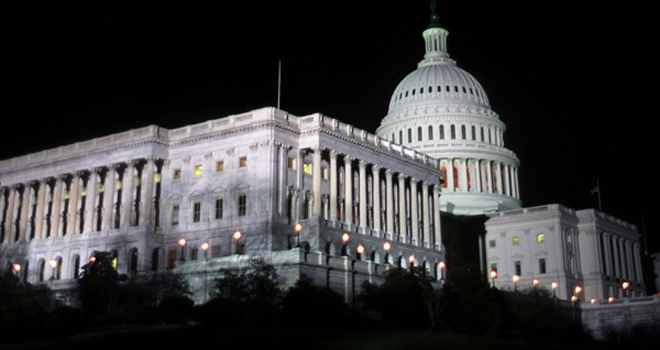With historic numbers of congressional Democrats thrown out of office in the 2010 midterms, the stage was set for another surge of ex-lawmakers to go through the revolving door into the lobbying business. So we figured it was time to update our ongoing “Shadow Congress” project in which we chart state-by-state which former lawmakers are now lobbying.
With the addition of recently defeated lawmakers, there are now at least 195 former lawmakers cashing in on their public service, according to an updated list compiled by TPM. That’s up from 172 the last time we checked.
Check out the members of this so-called “Shadow Congress” on our updated interactive chart.
The new list, made up of 90 Democrats and 105 Republicans who hailed from 45 states, includes 29 former members of Congress who’ve been added to our list. Some of the big names who have made the switch — Sen. Chris Dodd (D-CT), who joined the Motion Picture Association of America, former Sen. Evan Bayh (D-IN) who’s now working for the U.S. Chamber of Commerce, and former Sen. Blanche Lincoln (D-AR) — have drawn scrutiny for their quick turnaround.
We removed Sen. Dan Coats (R-IN) and Rep. Charlie Bass (R-NH), two former lobbyists who have returned to Congress, and a handful of members who had died, retired or have gone inactive.
Not all the former members on our list are officially registered as lobbyists. But in practice, many of these former members of Congress end up working for groups with lobbying practices while not, they say, technically lobbying themselves. For example, eight former Blue Dog Democrats who weren’t reelected last cycle are already working for organizations which lobby their former colleagues on the Hill, as the Center for Public Integrity reported last month.
Recently defeated and retired lawmakers have to deal with additional restrictions: There is a two-year “cooling off” period in place for former members of Congress that is supposed to ban them from engaging in lobbying activities.
Good government groups saw what is really needed is better lobbying disclosure, because many of the former members of Congress who are clearly engaged in lobbying activity find ways to avoid saying they’re doing so. They also say it is difficult for anyone to really know whether a lobbyist who says they don’t have to register because they spend less than 20 percent of their time on lobbying activities is being honest about how they spend their time.
Click over to the chart for a state-by-state breakdown of the areas the now lobbyists used to represent.
Research: Melissa Jeltsen, Ian Power-Luetscher and Igor Bobic. Graphic: Erik Hinton.







